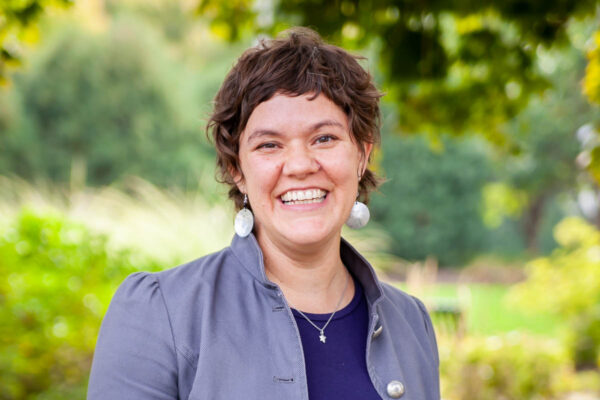Compassionate solidarity
Twenty-five thousand people turned out on a cold January day in New York City to rally in solidarity with the Jewish community following the December 28 attack on a rabbi’s Hanukkah party. It was an eloquent witness of support amidst ever-growing numbers of attacks on Jews and their places of worship. With no provocation and no connection between the victims and the attackers, these crimes are as random as they often are fatal, instilling palpable fear in entire communities. It wasn’t only Jews from New York who rallied; people of every faith and no faith were there, some from places hundreds of miles distant. It was beautiful human solidarity.
It was also more than that. It was, for many Christians, a deliberate act of support for Jews under threat. Many Jews now sense that just being Jewish constitutes a daily risk. People of color in a predominantly white society know this feeling. Military men and women in uniform on liberal college campuses know it. Gay and trans people in conservative communities know it. The challenge of feeling secure in one’s identity is not unique to Jews, but the Jewish anxiety is linked in a pronounced way to the history of the Christian church. Too often, just being Jewish has constituted a risk.
For centuries, bishops and priests and evangelists and ministers taught that the world had no place for Jews, since they “rejected Jesus” and failed to follow their fellow Jew, Paul of New Testament fame, into the “new Israel” that became the church. Those church leaders nurtured a whole culture that held up Jews as the despised and disinherited poster children for unbelief, immorality, stubbornness, hypocrisy, greed, and treachery.
Thankfully, churches – for the most part – don’t do that anymore; yet the negative images, language, and instincts about Jews remain woven into the substrata of our culture. Anyone who feels some amorphous pain and suffering, and who looks for a scapegoat to blame, can easily dredge up “the Jews” of the church’s shameful past, targeting yet again real Jews in our day.
We are not the church of the past and we have not created the hatred that anti-Semites deploy. Christians need not feel guilty for a criminal act we did not commit. We can, though, acknowledge the terror that these crimes drive into Jewish hearts. Realizing what our spiritual forebears did by planting seeds that encourage the targeting of the Jews should have us all responding with energy and passion.
Perhaps we already know for ourselves what it feels like to live with daily anxiety in being singled out randomly, senselessly, and made a target. If not, we can certainly imagine the anguish. Now is a perfect moment to motivate ourselves to be in compassionate solidarity with Jews as together we build a world solidly framed with human decency, mutual respect, religious freedom, and personal safety.
If we believe that Christ has brought us this day, and that God is the true sovereign whom we worship and follow, then it makes sense to follow the vision of Isaiah with which we opened the recent Advent season:
Many people will go and say:
“Come, let us go up to the Lord’s mountain,
to the Temple of the God of Jacob.
“God will instruct us from God’s own ways,
so that we will walk in those paths….”
My house, says the Lord, will be called a house of prayer for ALL people.




